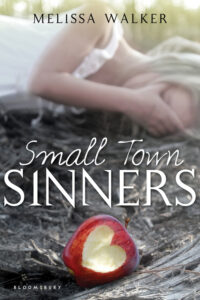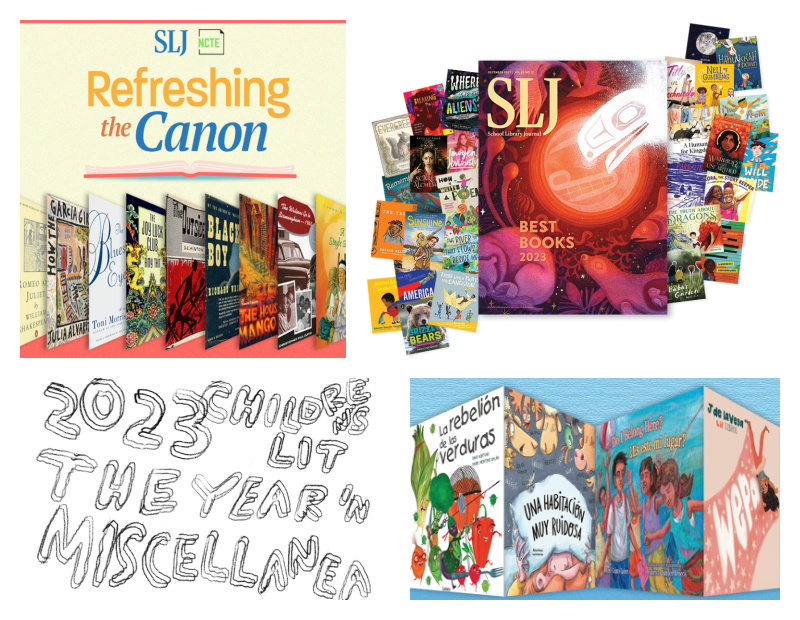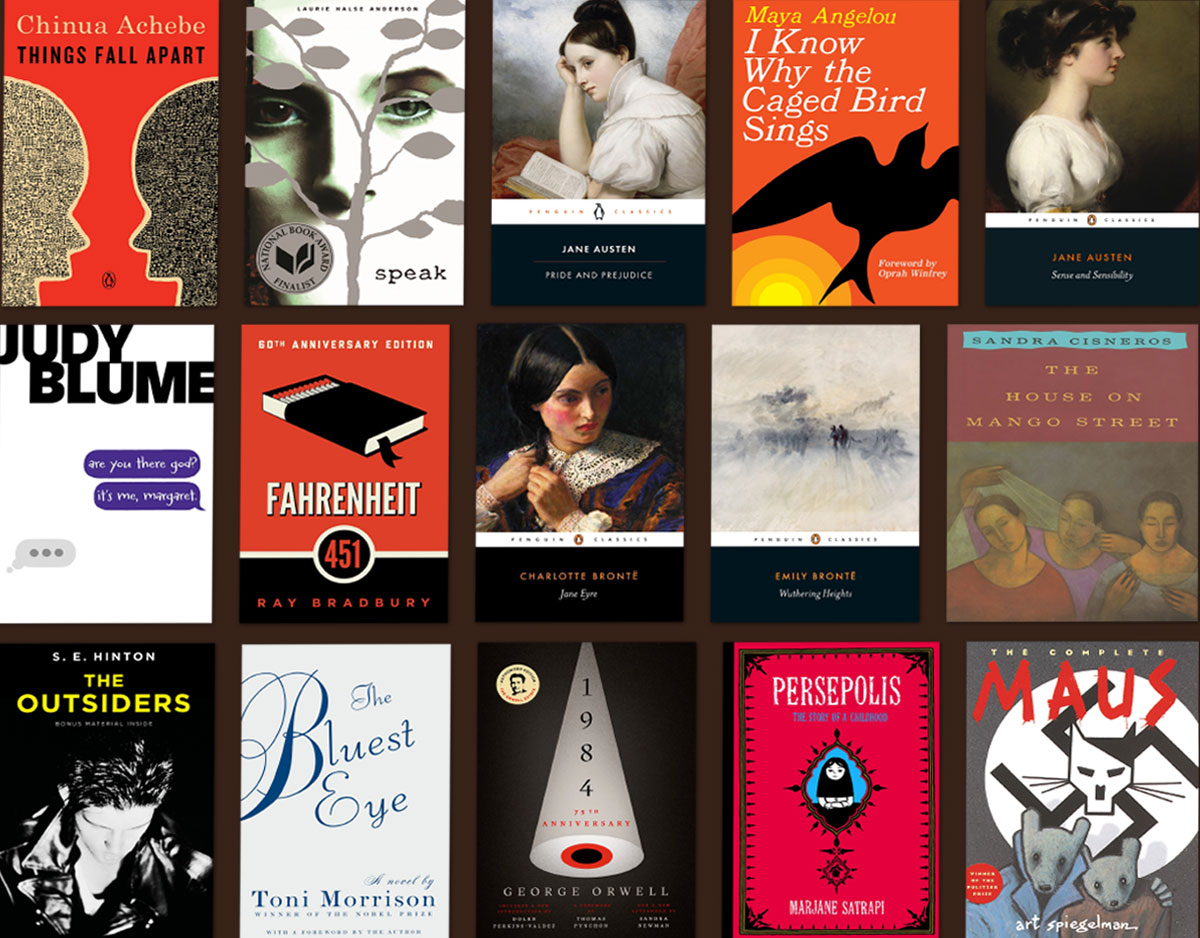Sunday Reflections: Writing Religion When It’s Not Your Faith, a guest post by Melissa Walker (#FSYALit)
 As a Youth Ministry major at a conservative Christian college in the Midwest, I soon became acquainted with a yearly Halloween tradition known as Hell House or Hell Stop, depending on what they chose to call it. It was a new concept to me and I went and visited one once and to me, personally, it was traumatizing the way they combined the traditional horrors of a haunted house with the intense guilt of Christian sin. I came out of my first experience incredibly shaken, which is of course the point. So I was very excited when author Melissa Walker contacted Ally and I about writing a guest post regarding her YA novel, Small Town Sinners. This discussion about faith and spirituality in YA lit has done many things, including helping me discover books I might have missed the first time around and giving us all an opportunity to explore faith experiences, whether they be real and personal or those of fictional characters in the pages of a book, that help us better understand our teens. In addition, as part of the ongoing discussion about needing more diversity in books, one of the main questions I keep hearing being asked is how do you write about something or someone that is so different from your real world knowledge and experience – in this case a faith that is different than your own. The answer I keep hearing over and over again is that one, you must do your due diligence and research, but the other part of that answer is that you must be willing to listen to those who are actually living that life, or as in the case of Small Town Sinners, that faith. Today we are honored to have author Melissa Walker sharing her experience with us in writing about a faith that was different than her own in her book, Small Town Sinners.
As a Youth Ministry major at a conservative Christian college in the Midwest, I soon became acquainted with a yearly Halloween tradition known as Hell House or Hell Stop, depending on what they chose to call it. It was a new concept to me and I went and visited one once and to me, personally, it was traumatizing the way they combined the traditional horrors of a haunted house with the intense guilt of Christian sin. I came out of my first experience incredibly shaken, which is of course the point. So I was very excited when author Melissa Walker contacted Ally and I about writing a guest post regarding her YA novel, Small Town Sinners. This discussion about faith and spirituality in YA lit has done many things, including helping me discover books I might have missed the first time around and giving us all an opportunity to explore faith experiences, whether they be real and personal or those of fictional characters in the pages of a book, that help us better understand our teens. In addition, as part of the ongoing discussion about needing more diversity in books, one of the main questions I keep hearing being asked is how do you write about something or someone that is so different from your real world knowledge and experience – in this case a faith that is different than your own. The answer I keep hearing over and over again is that one, you must do your due diligence and research, but the other part of that answer is that you must be willing to listen to those who are actually living that life, or as in the case of Small Town Sinners, that faith. Today we are honored to have author Melissa Walker sharing her experience with us in writing about a faith that was different than her own in her book, Small Town Sinners.
I first heard about the concept of Hell House from a friend’s mom. She started talking about how her church had staged a “haunted house of sin” for Halloween, and my jaw dropped as I heard the details—a dramatic play with scenes about gay marriage, abortion, suicide, pornography… and then a meeting with the Devil and a rescue by Jesus, who asked attendees if they’d like to be saved.
ADVERTISEMENT
ADVERTISEMENT
This I had to see.
I grew up attending a Methodist church in the liberal southern town of Chapel Hill, NC. I’m familiar with Christian church life—being shushed during the main service before I got to escape to my Sunday School classroom, following along with the words in the hymnal, watching sunlight stream through stained glass windows, enjoying picnics with fried chicken and corn on the cob and greens with bacon fat (yum), and loving that feeling of being known (and parented) by all the adults in the congregation on Sundays.
But Hell House? It sounded extreme to me and was certainly not my experience—I was fascinated. I pitched an article about a Hell House to ELLEgirl magazine, where I was Features Editor, and one Friday before Halloween, I flew into a small West Texas town. The pastor who was staging the Hell House was expecting me, and he had asked a local restaurant to stay open because I was coming in late and would need supper. That was just the first of many warm gestures that met me in this town.
I won’t lie: Over the weekend I saw some crazy stuff. The gay marriage scene of this particular Hell House ended with one partner dying of AIDS in a hospital bed while the devil shouted about wicked deeds. The abortion stage included a beating heartbeat soundtrack and a central table where a girl sat screaming and bleeding, plus the ghost of her aborted child visiting her at age five (played by a five-year-old congregant) and asking “Why did you kill me, Mommy?” The devil, played by the children’s pastor, was truly terrifying with his extra-long nails and the way he whispered in my ear: “I know how you’ve sinned.”
It was plenty for my article. But there was a lot that I didn’t get to include in the ELLEgirl story. Like how the teenagers I met were smart and funny and warm, how the parents I talked to were genuine and kind and wanted the best for their kids. And how the people in this small town were very much like the people in the small town where I grew up. I kept thinking about those people, and I found myself struggling with how shocking I found their version of Christianity. The journalistic piece was one part of the story, but I wanted to ponder their truth from another angle.
When I started writing Young Adult fiction, I wrote about the fashion world in the Violet on the Runway series, because it was what I knew as a magazine editor in NYC. But eventually, I looked back to that weekend in West Texas, and I wrote a book called Small Town Sinners.
ADVERTISEMENT
ADVERTISEMENT
At first, I thought the story would be about a girl rebelling against her church’s strict, controversial teachings. My initial outline was very black and white. But then I started writing, and my main character, Lacey Anne, was much more nuanced than that. After all, she wasn’t me. She’d grown up with Hell House in her church, and to her, it was a fantastic play, a way to bring more people to God, and a chance to be in the spotlight. She didn’t consider the politics of it, or the controversy. She just wanted the main role—Abortion Girl.
I know religion is a hard thing for lots of readers—I had two authors decline to blurb the book, both saying it was because the religious aspects made them upset, and I understand that. Hell Houses are intense and dramatic, but there’s more to the book than that. I wanted the story built around the Hell House production to have quiet, introspective moments. Because when that much commotion is going on externally, there are deep emotions happening internally, too.
I wasn’t trying to write a book with “issues” in it, but I did want to present a story that felt true to what these characters—high school students in a small, conservative town—might be facing. It turns out that what it took for me to write about a religion that wasn’t my own was a strong sense of trust in my characters. I had to know Lacey Anne and her friends and family on a deep level; and once I started writing, I saw things through their eyes and their points of view took control of the narrative. I love books that deal with hard subjects because reading about how characters handle their own tricky situations can ideally create empathy, understanding, and a real consideration of “What would I do if that were me?”
Meet Our Guest Blogger:
Melissa Walker is a writer who has worked as ELLEgirl Features Editor and Seventeen Prom Editor. All in the name of journalism, she has spent 24 hours with male models and attended an elite finishing school for girls in New Zealand, among other hardships. She has written for many publications including Redbook, Glamour, New York, Teen Vogue, Family Circle and more (see samples of her magazine work). She is the co-founder of I Heart Daily with fellow ex-ELLEgirl Anne Ichikawa. It’s a daily newsletter about likable stuff.
Melissa lives in Brooklyn and has a BA in English from Vassar College. She would tell you her SAT scores too, but, you know, the math part was hard. She loves meeting teenagers, and is game to speak at your library or school about writing, books, fashion, magazines or pop culture (but, you know, in a smart way). Get in touch to discuss.
Melissa’s site: melissacwalker.com
About SMALL TOWN SINNERS:
The story of Lacey Anne Byers, a small town girl who is excited to star in Hell House, her church’s annual haunted house of sin, until a childhood friend reappears and makes her question her faith. (Bloomsbury, 2011)
Filed under: #FSYALit, Faith, Spiritual Life, Spirituality
About Karen Jensen, MLS
Karen Jensen has been a Teen Services Librarian for almost 30 years. She created TLT in 2011 and is the co-editor of The Whole Library Handbook: Teen Services with Heather Booth (ALA Editions, 2014).
ADVERTISEMENT
ADVERTISEMENT
SLJ Blog Network
Name That LEGO Book Cover! (#53)
Cover Reveal and Q&A: The One and Only Googoosh with Azadeh Westergaard
Exclusive: Vol. 2 of The Weirn Books Is Coming in October | News
Fighting Public School Book Bans with the Civil Rights Act
ADVERTISEMENT








It must be challenging. The small town people it seems dramatized the devil and his works. its a sensitive area and am glad you at least had the courage to write about it. Thanks.
Great blog and awesome read